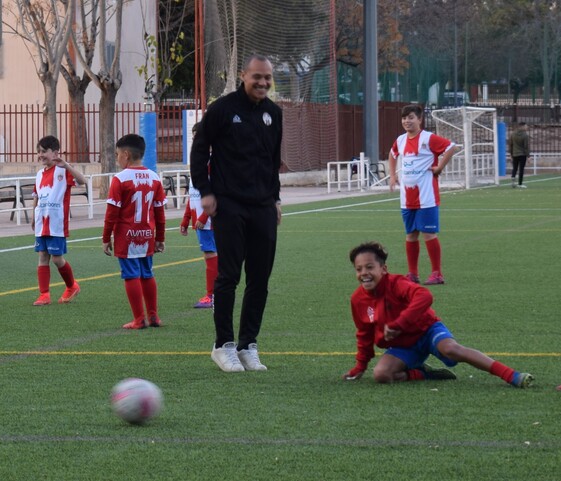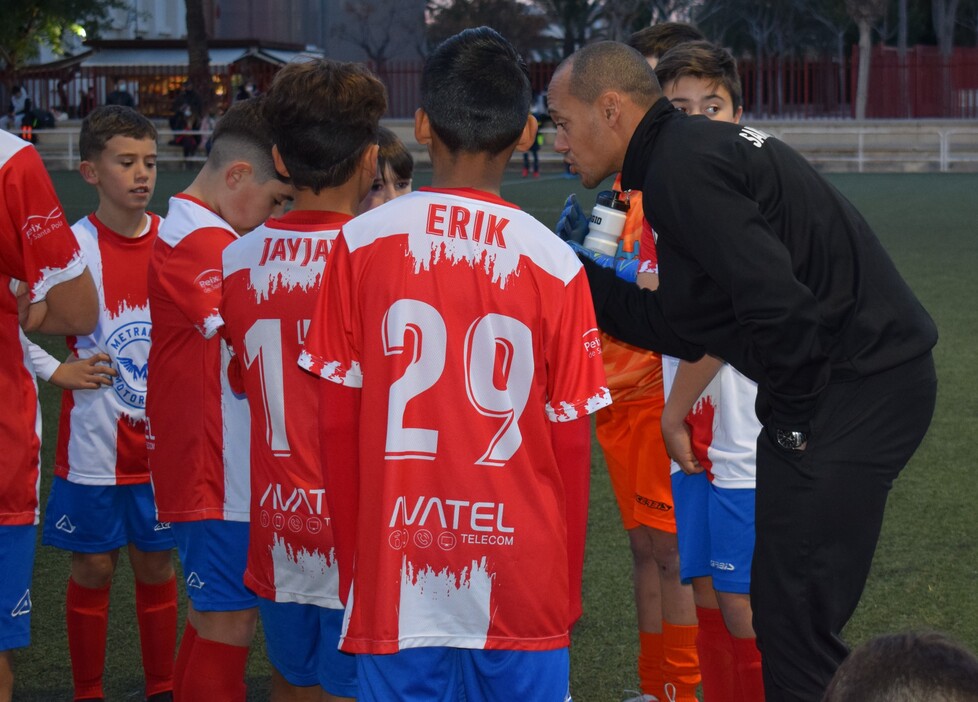Do you have the skills that a good football coach should have?
Coaching a team of young athletes can be challenging and rewarding, but it’s not without its fair share of obstacles.

If you’re ever lucky enough to be given the opportunity to coach a soccer team, you must possess the right skills.
So what are they?
The skills that a good football coach will have include:
1. Patience
2. Communication skills
3. Leadership skills
4. Knowledge of the game
5. Organisational skills
6. Ability to motivate players
7. Willingness to reflect
8. Confidence
Possessing all of the above skills, which are not exclusive, will ensure that you will be a high-level coach.
Please know that the list above is not exhaustive, nor should you think the skills are something you have or do not have.
In reality, we all have these skill sets to a certain degree. So it is better to think about how competent you are with these skills on a continuum scale, in which we can move up the scale with more practice.
So let’s take a more in-depth look at these football coaching skills and how we can continually improve them.
1. Patience
There will be times when players…
- Don’t understand a concept or training drill
- Make mistakes
- Have behaviour issues
- Suffer from lack of confidence
And yes, I know… We have all had moments when our level of patience is not at its highest. Work, family life and other stresses can all cause our patience levels to suffer. That’s normal.
However, we must stay calm and focused and not let outside influences take over. So make sure your game face is ready whenever your patience is low.
Now, you do not need to put on a false act. Far from it… You can still be yourself!
It just means that you will be entirely focused on the training session without having any distractions from outside of the training session or game.
To be a successful coach, you must have a lot of patience, as this virtue will be tested repeatedly, especially when working with kids.
There may be times when you need to patiently explain things several times in a calm manner that does not put too much pressure on the player.
2. Communication skills

Communication skills are another critical factor of a good soccer coach. Whether you’re delivering instructions to players, giving feedback or dealing with parents and other coaches, it’s essential that you can clearly and effectively communicate your message.
This means being mindful of the type of communication style best suits each situation. You may need to be firm, direct and assertive one moment, but in other scenarios, you may need to use more tactful and diplomatic communication.
I think it’s essential to adapt your communication style as needed, based on the circumstances and who you are dealing with.
Styles of communication can include…
Verbal
Verbal communication is using our voice to give instructions, transfer ideas from our brain to our players or give feedback to individual players or the whole team. Although, there are various ways in which the tone of the voice can affect communication.
- Softly or hard tone
- Particular words used
Nonverbal
In addition to verbal communication, we also use our bodies to transfer information. Some common examples include…
Facial expressions
Body posture
Eye contact
From a personal point of view, anybody that knows me will tell you that my facial expression gives away what I think at any particular moment. So if I am disappointed or upset with something, it is visibly apparent to everybody else.
So make sure you are aware and can control your immediate reactions in front of the young players.
I have witnessed the odd coach ranting and raving because a young player missed a golden opportunity to score a goal.
Let’s take the young players’ perspective for a second, albeit hypothetically…
I missed an excellent chance to score a goal which made me sad, even though I tried my best. Then, I looked to the sideline and saw the coach jumping up and down with frustration. That made me feel like a terrible player and scared of being in that position again in case I made another mistake.
Whilst this is fictional, this scenario can genuinely happen and is one that I am sure all coaches want to avoid with young players.
Written communication
Since I work in a foreign country that does not speak English, I use written communication as much as possible when giving feedback on games. This means I can take my time and choose my words appropriately, so my message is clearly understood.
This is done in the form of video analysis which I attach notes to each highlight clip I create using a Veo camera.
3. Leadership skills
Another critical skill for a good soccer coach is the ability to lead.
A coach should aim to be a role model, setting the standards and expectations for the players. So it’s vital that you display confidence in yourself and your abilities while demonstrating empathy towards others.
4. Knowledge of the game

A good soccer coach also requires a strong knowledge of the game, including the rules and tactics.
It would be best if you had a solid understanding of how to set up your team effectively for different scenarios and situations and a clear idea of what you want your players to do in each phase of play.
This does not mean you will have all the correct answers at any particular moment, but sharing your reasoning for certain decisions will enable players to trust your knowledge of the game.
5. Organisational skills
Good soccer coaches also need strong organisational skills. This includes planning practices and matches, organising training sessions and team meetings, and possibly dealing with logistics such as transportation and accommodation for trips away.
6. Ability to motivate players
A good coach must motivate and inspire their players, building their confidence and helping them develop as young athletes. This can be done through positive encouragement and by creating a supportive team environment.
As a coach, it is your job to instil a sense of passion and drive in your players, encouraging them to succeed on and off the field. Whether it’s pushing them to work harder, giving them the confidence to take risks, or simply showing that you believe in them.
6 Tips For How To Motivate Kids At Football Training
7. Ability to reflect
As with any role, a good soccer coach must also be able to reflect on their performance and the team’s performance constantly. This means asking critical questions like ‘What went wrong?’ and ‘How could we or I have done things differently?’ and then developing strategies for improvement going forward.
8. Confidence
Finally, coaches need to be confident in the decisions that they make.
Of course, we must speak with others and seek new ideas and opinions. However, at the end of the day, you have to make the final decision!
So a coach must believe that what they are doing is correct and persist with it for as long as they are still of that opinion. Do not let others take you away from what you believe, and continue with your philosophy to follow those beliefs and principles that guide your decision-making.
A good soccer coach takes hard work, passion, dedication, and skills. It is not essential to be great at all these skills, but as long as you recognise, continue to practice and improve these skills, you will be well on your way to constantly refining your coaching abilities.
If you’re interested in becoming a good soccer coach or want to learn more about other coaching topics, head to the blog post page or check out the articles below.
